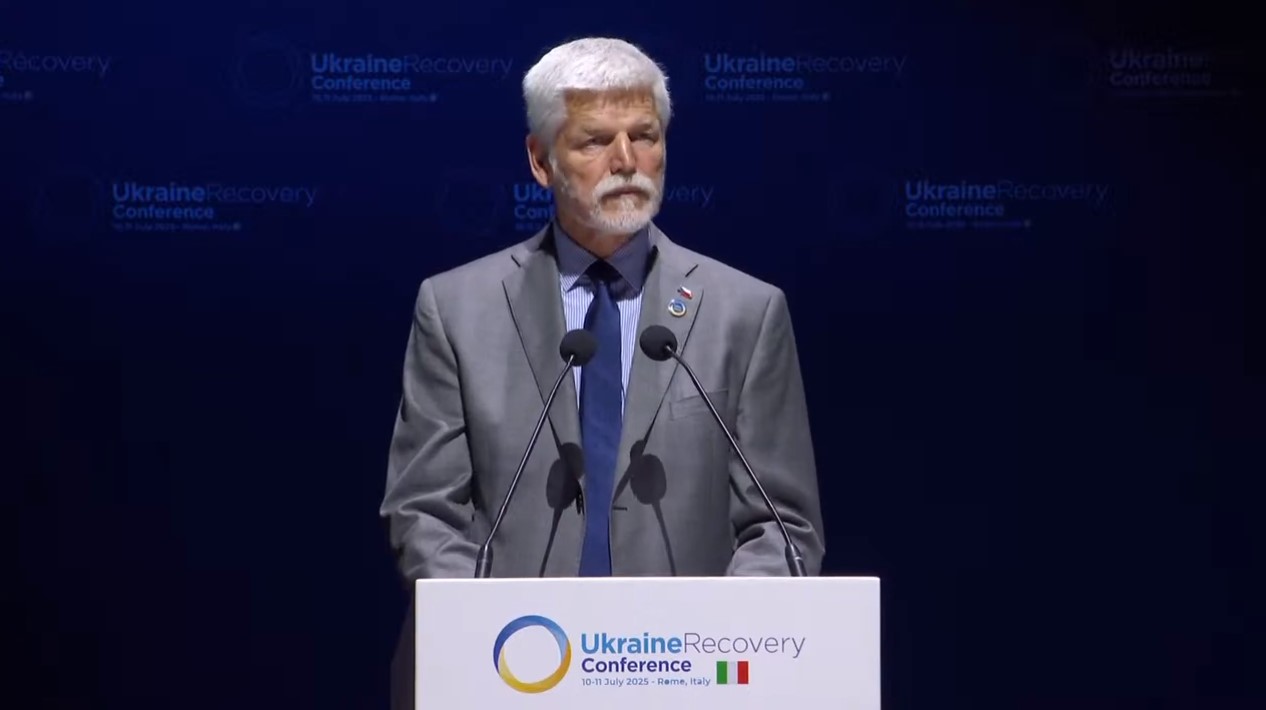Russia is trying today to dictate where Europe should end, but these attempts will not bring success to Moscow.
This was stated by the President of the Czech Republic, Petr Pavel, at the International Conference on Ukraine’s Recovery.
Quoting President Volodymyr Zelensky’s call for a Marshall Plan–style initiative to rebuild Ukraine, Pavel recalled the example of his own country, which after receiving access to the original Marshall Plan after World War II, was forced under Moscow’s pressure to reject the funding—a decision that “set back the return of the Czech Republic to Europe by decades.”
“Today, Moscow again claims the right to decide where Europe ends. But this time, these claims will not succeed. Ukraine has chosen its path, and we have supported its choice. The modern Marshall Plan must reflect that choice—not only as a tool for recovery but also as a political commitment to Ukraine’s future as part of Europe,” Pavel said.
“The foundations of these efforts have already been laid: the Plan for Ukraine, the EU Ukrainian Mechanism, the impressive work of the Ukrainian government, the European Commission, and international partners. But these are just elements. What we need now is a broader, more ambitious framework—one that unites state leadership, private capital, institutional reforms, and strategic vision,” the Czech president stated.
He noted that preparations for recovery must take place “before the weapons fall silent,” because at that point work must begin immediately with ready “plans, resources, and partnerships.”
To achieve Ukraine’s recovery goals, Pavel believes a broader political coalition is needed, where alongside the EU and its member states, democratic partners such as the United States, the United Kingdom, and others share strategic responsibility and coordination.
The Czech president also suggested moving away from fragmented coordination toward real management of the recovery process, with a decision-making center capable of setting priorities, managing resources, ensuring results, and evaluating progress.
Equally important is the presence of a single digital platform that would display all projects, making them visible and transparent to citizens, investors, and partners.
Moreover, Pavel believes private investments should be the driving force of recovery, while reminding that frozen Russian assets should also be actively used in this process.
Pavel emphasized that Ukraine’s recovery must go hand in hand with gradual integration into the single European market, with the EU investing in Ukraine’s institutional capacity-building and supporting human capital through education and knowledge exchange.
He also stressed that resources should match capacities, and countries involved in Ukraine’s recovery should contribute in areas where they are most successful.
The most affected regions of Ukraine should become centers of recovery, Pavel said, citing the Czech Republic’s contribution to local reconstruction efforts, including access to clean water, energy, healthcare, education, and support of vital services.
“Recovery of Ukraine is not just rebuilding a country. It is a strategic investment in Europe’s future, in our stability, and in trust in what we stand for,” Pavel concluded.





















